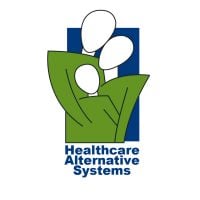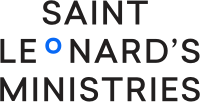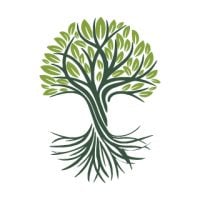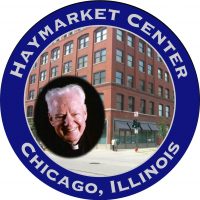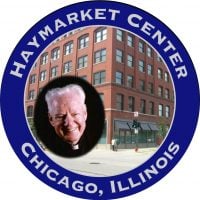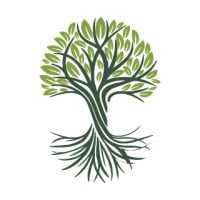The Women's Treatment Center
Drug Rehab Center in Chicago, Illinois
The Women's Treatment Center in Chicago, IL is a JCAHO-accredited and SAMHSA-accredited addiction treatment facility providing comprehensive detoxification, rehabilitation and aftercare support services to individuals looking for a road to sobriety and ongoing recovery with a capacity of 117 beds and private health insurance acceptance.
About This Chicago, IL Facility
The Women’s Treatment Center in Chicago, Illinois offers 117 beds for residential treatment for addiction and substance abuse. They provide a range of medical and behavioral services to meet a variety of individual needs, including detox, inpatient, intensive outpatient, and outpatient care as well as recovery support for those transitioning to sober-living or halfway houses. The facility is accredited by JCAHO and SAMHSA, so patients can be sure they are receiving the highest quality of care.
At The Women's Treatment Center, they understand that no two people experience addiction and recovery the same way, so they provide personalized treatment plans that are designed to treat the patient as a whole. This includes programs such as dual diagnosis, which focuses on identifying and treating any mental health concerns that may be related to addiction. They offer comprehensive treatment such as counseling, group therapy, and 12-step support groups, as well as other essential services to help individuals maintain long-term sobriety. Additionally, they accept private health insurance to make treatment more accessible for those who need it.
Genders
Ages
Modality
Additional
Accreditations
SAMHSA

JCAHO
Conditions and Issues Treated
Using both legal medications and illegal substances in order to maintain an addiction is substance abuse. Illegal substances can become addictive after a single use. If you are obtaining legal medications illegally, you may be suffering from substance abuse.
Fortunately facilities like The Women's Treatment Center in Chicago, IL are here to help.
Opioid addiction treatment facilities in Illinois, like The Women's Treatment Center cover both illegal and prescription opioids abuse. Most plans include detoxification and subsequent medications to ease the process. Behavioral therapies and counseling are also necessary to resolve the root cause of addiction.
When someone in Illinois struggles with both addiction and mental or emotional illness, this is considered a dual diagnosis. Dual diagnosis treatment can include emotional trauma, bipolar disorder, schizophrenia, depression. Getting treatment for these issues must occur at the same time to treat either of them effectively.
Levels of Care Offered
This center offers a variety of custom treatment tailored to individual recovery. Currently available are Aftercare Support, Detox, Drug Rehab, Dual-Diagnosis, Inpatient, Intensive Outpatient, Outpatient, Residential, Sober-Living / Half-Way, with additional therapies available as listed below.
A detox program helps the person physically withdraw from drugs and helps them track their progress. So, suppose the person isn’t ready for sobriety (or relapses). In that case, the treatment professionals can catch it early and help re-orient them towards recovery.
In order to focus on the psychological aspects of addiction, one must first address the physical symptoms of withdrawal.
Withdrawal symptoms can be painful, even fatal, so managing the detox process carefully is critical. Severe withdrawal symptoms are often treated with more advanced pharmaceutical interventions. Nausea and headaches are common side effects of detoxification.
Inpatient rehabilitation aims to treat severe addictions and co-occurring disorders. Depending on individual requirements, the duration of the stay at The Women's Treatment Center ranges from four weeks to six months. Illinois inpatient recovery guarantees that the patient resides in an environment free of drugs.
An intensive outpatient treatment program is set up for those struggling with an addiction to begin the recovery process. Patients come to Chicago, IL to The Women's Treatment Center for therapy, support, programs, and medical supervision. Intensive outpatient treatment is often very tightly scheduled and heavily structured.
A sober living home in Chicago, IL, also known as an SLH, is much like a halfway house. It is halfway between a drug or alcohol treatment facility and living at home. There are some specific rules and regulations residents must follow, like attending mandatory meetings, and household chore-type activities.
Residential treatment programs are those that offer housing and meals in addition to substance abuse treatment. Rehab facilities that offer residential treatment allow patients to focus solely on recovery, in an environment totally separate from their lives. Some rehab centers specialize in short-term residential treatment (a few days to a week or two), while others solely provide treatment on a long-term basis (several weeks to months). Some offer both, and tailor treatment to the patient’s individual requirements.
Treatment for substance abuse does not cease after an individual successfully completes a detox or rehabilitation program. A vital follow-up treatment service is aftercare support provided to individuals at The Women's Treatment Center in Illinois after they attain initial sobriety.
Aftercare support often takes the following forms: 12-Step Programs, Outpatient Treatment Programs, and Support Groups. The most effective aftercare programs are tailored to meet an individual’s specific needs and circumstances.
The Women's Treatment Center‘s Therapies & Programs
Treatment programs include individual therapy for the greatest chances of success. Customized individual therapy is counseling involving you and your The Women's Treatment Center counselor. Individual therapy leads to greater peace and understanding about your triggers for addiction.
When family members are more proactive and involved in the treatment procedure, it encourages the patient to advance his or her progress. Moreover, it shouldn’t be ignored that genetics play a role when it comes to addiction, so it’s better to approach the problem as a unit. Also, with proper education, family members can help an individual avoid addiction triggers and guide him or her in making lifestyle changes necessary for his or her sobriety.
It has been said that unhealed trauma is the root of most addictions. Trauma therapy is a way of addressing trauma while in a safe situation in order to heal. Healing past traumas and introducing coping strategies are strong foundations for sustained recovery from addiction. This may involve individual or group counseling or both, in a Chicago, IL facility. Other forms of therapy have been proven to assist in healing past traumas.
Addiction commonly results in varying levels of malnutrition, vitamin and mineral deficiencies. This can be reflected in weight loss, hair loss or hair changes, skin irregularities and damage to multiple internal body functions. While in active addiction meals can be skipped or replaced by drugs or alcohol. Eating correctly to replace lost vitamins and minerals while balancing your diet can build confidence while restoring your health from the inside out.
Nicotine Replacement Therapy (NRT) helps smokers get nicotine into their system without resorting to smoking. It’s a way to help people quit smoking without going cold turkey and experience aggressive withdrawal symptoms. The products (in the form of gums, sprays, patches, inhales, or lozenges) used in NRT provide the body with nicotine, excluding the toxic substances found in tobacco.
NRT treatment at The Women's Treatment Center in Chicago, Illinois lowers down nicotine cravings, so the patient does not go through physical weakness while dealing with the emotional and mental stress of quitting smoking. Coupling NRT with counseling and other means of support gives long-term smokers a better chance of removing their unhealthy habit.Payment Options Accepted
For specific insurance or payment methods please contact us.
Is your insurance accepted?
Ask an expert, call (888) 674-0062
Additional Details
Specifics, location, and helpful extra information.
Chicago, Illinois 60607 Phone Number(312) 850-0050 Meta DetailsUpdated November 25, 2023
Staff Verified
Patient Reviews
There are no reviews yet. Be the first one to write one.
Chicago, Illinois Addiction Information
In 2016, more than 2,350 Illinoisans died from drug overdoses. More than 5,500 deaths annually occur in Illinois due to the abuse of alcohol and other drugs. 7.17% of Illinois residents reported using illicit drugs in the past month (2018). Substance abuse costs the state approximately $3.5 billion every year.
Drug misuse can lead to other serious health problems, including HIV/AIDS or hepatitis C infection and liver disease. Chicago's main drugs of abuse include heroin, cocaine, and methamphetamine. Field sobriety tests can be used to determine if someone is driving under the influence of drugs or alcohol. There are about 872 drug treatment centers in the city, and the number of people seeking help for addiction continues to rise.
Treatment in Nearby Cities
- Geneva, IL (34.1 mi.)
- Edwardsville, IL (244.3 mi.)
- Addison, IL (16.9 mi.)
- Princeton, IL (99.6 mi.)
- Tinley Park, IL (22.5 mi.)
Centers near The Women's Treatment Center
The facility name, logo and brand are the property and registered trademarks of The Women's Treatment Center, and are being used for identification and informational purposes only. Use of these names, logos and brands shall not imply endorsement. RehabNow.org is not affiliated with or sponsored by The Women's Treatment Center.




